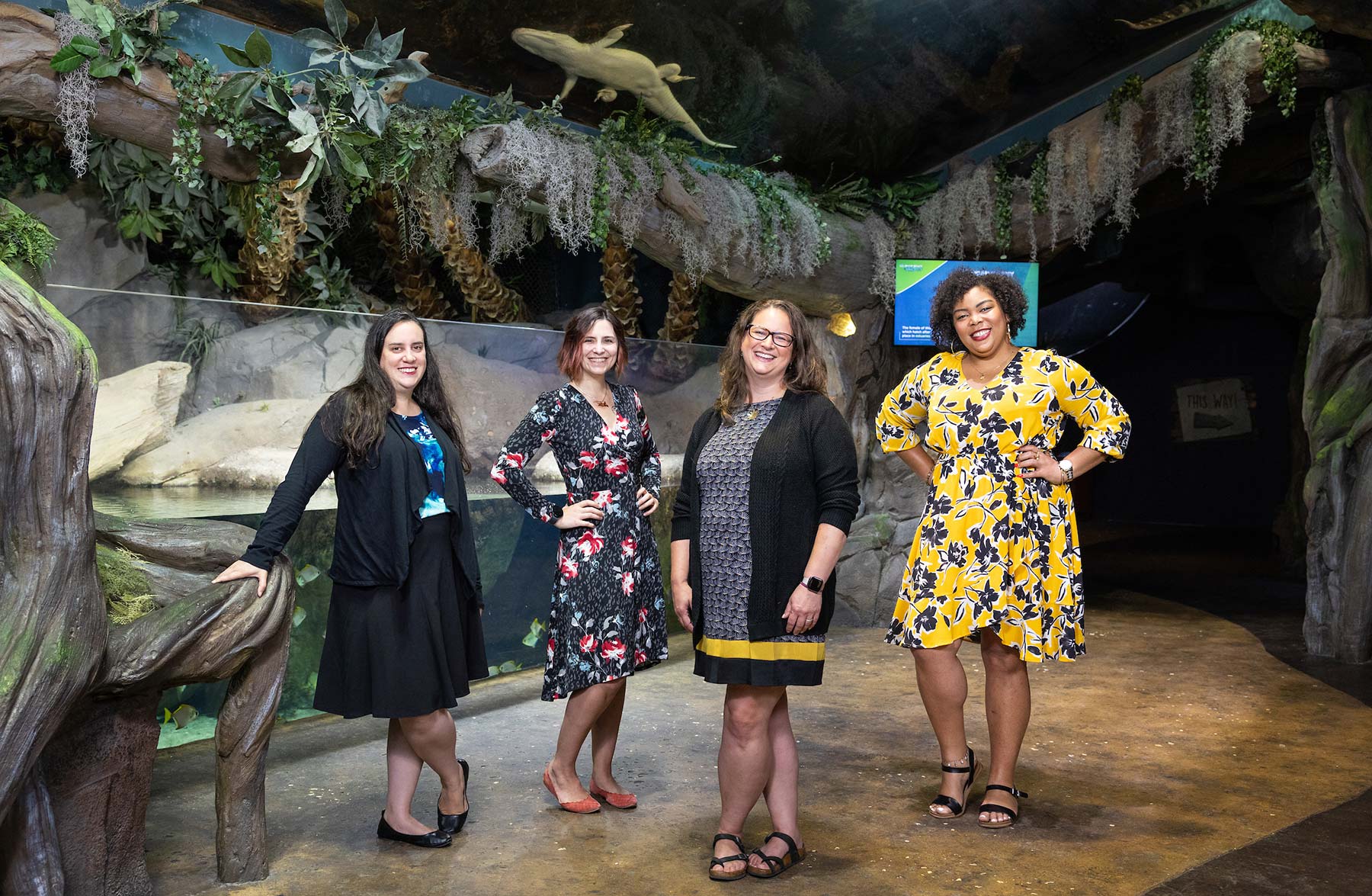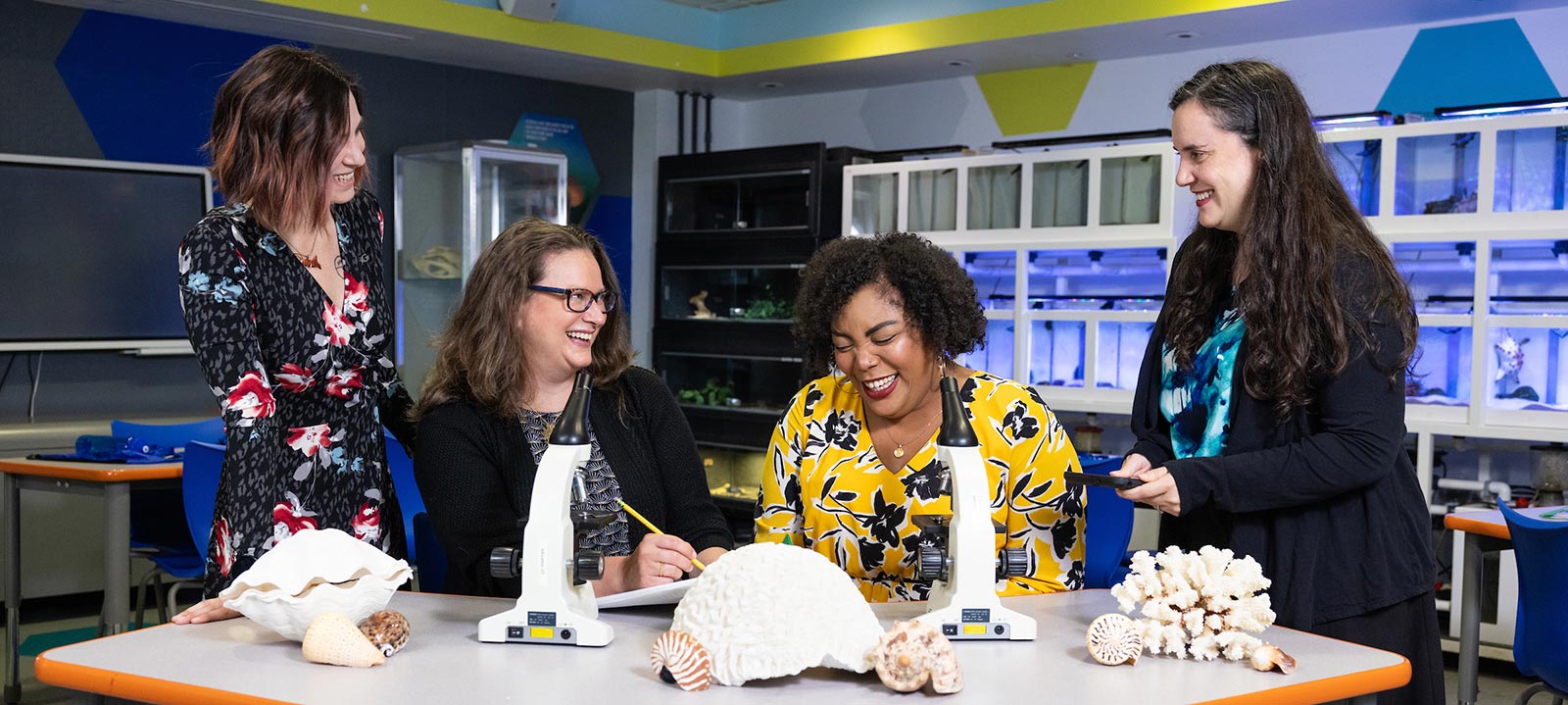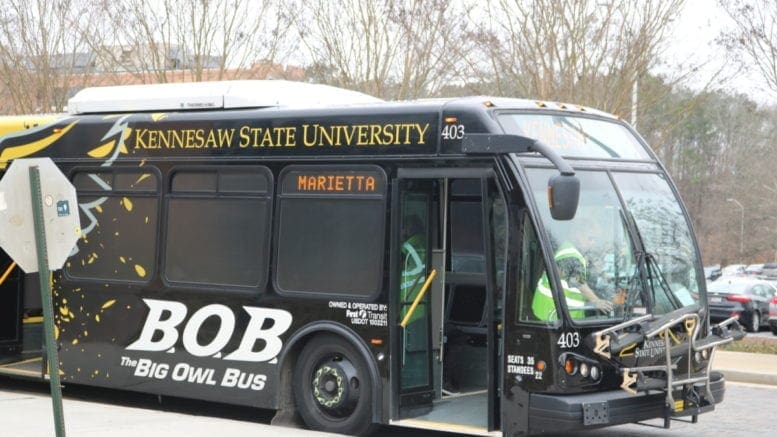[This article by Thomas Hartwell was first published on the Kennesaw State University website, republished with permission]
KENNESAW, Ga. | Jun 30, 2023
A new partnership between Kennesaw State University and Georgia Aquarium is taking Georgia K-12 science teachers into the great outdoors so they can bring hands-on lessons back to the classroom.
Through the Aquarium’s revamped Rivers to Reefs program, three KSU Bagwell College of Education faculty and Georgia Aquarium staff will take area science teachers from the rivers of Atlanta, Georgia to the state’s coast to learn about water ecosystems and water quality in their communities. The partnership centers around lessons developed by the Aquarium and a water curriculum toolkit developed by KSU’s Anna Arias, associate professor of elementary science education, and assistant professors of science education Rasheda Likely and Jessica Stephenson Reaves.
“This partnership allows us to leverage the knowledge and resources of the Aquarium staff with our own knowledge and experience as educators,” Arias said. “The teachers can see how scientists at the Aquarium learn about water organisms and ecosystems and research the impacts of pollution, and as education professors, we bring knowledge of how to convert these concepts into curriculum, investigations and that teachers can bring back to their classrooms.”

Following the lead of Molly Johnson, Georgia Aquarium’s manager of education programs, and her team, Arias, Likely and Stephenson Reaves will support a group of 16 science teachers from Title I schools across Georgia on a weeklong trip from July 10-14, with stops for lessons along the way. The group will begin their trip at the Aquarium, where they’ll undergo training on water quality testing, pollution and water ecosystems.
The rest of the week includes visits to Panola Mountain, Juliette Dam, Piedmont Wildlife Refuge, a canoe exploration of the Altamaha, Ocmulgee and Oconee rivers, and stops at the salt marshes and estuaries on Skidaway Island near Savannah. The travel and training culminate in exploration of Gray’s Reef, where educators will investigate plankton and learn about the impacts of microplastics on water ecosystems.
The partnership will not only benefit K-12 teachers in the area, but also allow both KSU and Georgia Aquarium to research what participating teachers take away and how they use it in their classrooms, both from the Aquarium’s lessons and the use of the KSU water curriculum toolkit.
“KSU has been instrumental in developing techniques for data collection throughout the trip,” Johnson said. “Georgia Aquarium is working to develop local advocates and stewards for Georgia’s waterways, and partnerships like these are an important component of instilling a sense of passion for our environment.”

In addition to benefiting children in the classroom with the knowledge teachers will bring back from their trip, the KSU team will use the Rivers to Reefs program as a research opportunity. Their research will help KSU educators learn more about how K-12 teacher professional development opportunities with meaningful experiences outside the classroom can be provided in the state.
“In experiential or outdoor education, teachable moments are literally around every bend in a river, or every curve on a trail,” Stephenson Reaves said. “Part of what we’ll be doing is helping to highlight these exciting and unplanned learning opportunities that happen along the way, and making connections to the content standards, classroom activities, and other resources that support student learning based on the experiences that teachers are having.”
For Likely, the trip and research combine all personal passions, from diversity and inclusion to a love for the water established as a native Floridian.
“I think that with this KSU team and the partnership with Georgia Aquarium, we can create an inclusive, equitable, and accessible space for teachers and learners to experience science knowledge together,” she said. “I am so grateful to be able to combine all of the things I love into one educational experience.”
Arias said the KSU-Georgia Aquarium partnership centers on one of the most basic needs in each of our lives — water — and allows participating teachers to establish an important connection between the waterfronts and drinking water in their communities and sources and health of water ecosystems around the state.
“Water is a key part of all of our lives. We use water every day for eating, cooking, cleaning, and we know our water and wildlife resources are intrinsically tied to clean water,” Stephenson Reaves said. “The best way to engage the public in conservation is through education programs that teach the importance of these resources and how we can protect these resources for future generations. Everyone has a connection to water, and as educators if we can leverage those personal ties and experiences, we can make the message of conservation more personal and meaningful.”
